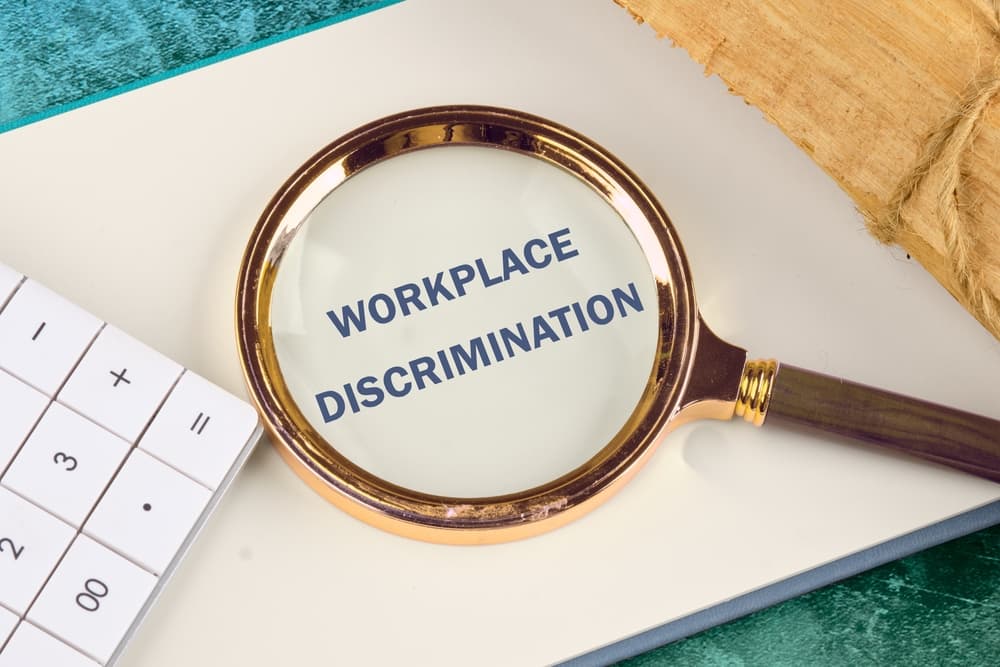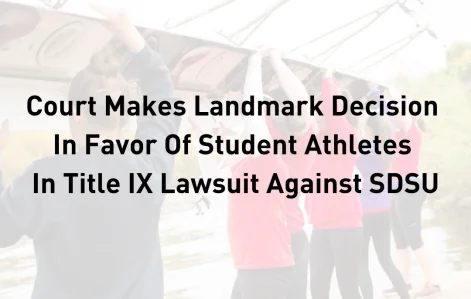Facing discrimination in the workplace is an incredibly distressing experience, and it takes immense courage to come forward and report it. However, many individuals worry about the potential consequences of speaking up, including the fear of being fired.
Federal and state laws prohibit employers from retaliating against employees who report discrimination. These laws exist to protect individuals from adverse actions or termination as a result of exercising their rights.
If your employer discriminates against you and you worry about retaliation, consult a discrimination attorney. They can provide guidance and protect your rights. You deserve to work in an inclusive and respectful environment free from discrimination.
Schedule a Free Case Evaluation
Understanding Workplace Discrimination

Workplace discrimination refers to the unfair treatment of employees based on specific protected characteristics. These characteristics can include race, gender, age, disability, religion, national origin, or sexual orientation.
Discrimination can manifest in various ways, such as unequal pay or promotions, harassment or a hostile work environment, and wrongful termination based on protected characteristics. Employees need to know their rights and recognize instances of discrimination to take appropriate action.
Federal Laws Protecting Employees Who Report Discrimination
Various federal laws have been put in place to protect employees who report discrimination in the workplace. These laws include:
Title VII of the Civil Rights Act
Title VII of the Civil Rights Act prohibits discrimination based on race, color, religion, sex, and national origin. It also protects employees from employer retaliation for reporting discrimination or participating in investigations related to discrimination claims.
The Age Discrimination in Employment Act (ADEA)
The ADEA protects workers 40 years old or older from age-related discrimination in the workplace and prohibits employers from retaliating against employees who report it.
The Americans with Disabilities Act (ADA)
The ADA prohibits discrimination against individuals with disabilities and requires employers to provide reasonable accommodations. It also protects employees from retaliation for reporting disability discrimination.
The Equal Pay Act (EPA)
The EPA ensures that employees receive equal pay for equal work, regardless of gender. It protects employees who report gender-based pay discrimination from retaliation.
The Whistleblower Protection Act
The Whistleblower Protection Act protects employees who report violations of laws, rules, or regulations. It prohibits retaliation against employees who blow the whistle on illegal activities or misconduct in the workplace.
These laws apply to private employers, government workplaces, and, in some cases, independent contractors. Employees should know their rights under these federal laws and understand how to seek legal protection if they face retaliation after reporting discrimination.
What Constitutes Retaliation for Reporting Discrimination?
Retaliation occurs when an employer takes adverse actions against an employee in response to their protected activity, such as reporting discrimination. You need a lawyer who can differentiate between retaliation and normal workplace disciplinary actions, as retaliation is illegal and may have severe consequences for the employer.
Examples of common employer retaliation include:
- Termination or wrongful firing after reporting discrimination
- Sudden demotions, pay cuts, or loss of job benefits
- Negative performance reviews or disciplinary actions as punishment
- Exclusion from projects, meetings, or advancement opportunities
- Hostile treatment, harassment, or increased scrutiny from management
Employees should also know about more subtle forms of retaliation, such as changes in job assignments or unreasonable workloads. After reporting discrimination, a lawyer can recognize and help you document any instances of retaliation.
Can an Employer Fire You for Reporting Discrimination?
It is illegal for an employer to fire an employee in retaliation for reporting discrimination.
However, most employment in the United States is considered “at-will,” so employers can terminate employees for any lawful reason or no reason at all as long as it is not retaliatory or discriminatory. This can create confusion and uncertainty for employees who are concerned about being fired for speaking up.
Employees can file a legal claim against their employer in cases of wrongful termination due to retaliation. To determine whether the termination was retaliatory, courts typically consider several factors, including the timing of the termination, the employer’s reasons for the termination, and any evidence of discriminatory or retaliatory intent.
Company policies and employee handbooks can also play a role in protecting whistleblowers by explicitly prohibiting retaliation.
However, there are exceptions where an employer may claim a legal reason for termination, such as poor performance or restructuring. In such cases, the employee should consult an attorney who can evaluate the circumstances and determine whether the termination was a form of unlawful retaliation.
Steps to Take If You Experience Retaliation for Reporting Discrimination
If you believe your employer has retaliated against you for reporting discrimination, call a lawyer to protect your rights and build a strong case. Here are some important steps to consider:
Document Everything
Keep detailed records of conversations, emails, and job performance reviews related to the discrimination and subsequent retaliation. This documentation will serve as valuable evidence if you decide to pursue legal action.
File a Formal Complaint
Report the retaliation to your company’s human resources department or upper management. Follow your company’s internal procedures for reporting complaints and document the complaint and any communication regarding it.
Seek Witness Testimonies
Gather support from colleagues who witnessed the discrimination or retaliation. Their testimonies can provide additional evidence to strengthen your case.
Know Your Rights
Take the time to understand your company’s policies, your employment contract, and your rights under federal and state laws. This knowledge will help you handle the legal process and make informed decisions.
Consult an Employment Lawyer
Seeking guidance from a workplace retaliation attorney who is well-versed in federal and state employment law is essential in cases of retaliation for reporting discrimination.
An experienced workplace retaliation lawyer can assess your situation, advise you on legal options, and build a strong case.
Filing a Retaliation Complaint With the EEOC

If your employer wrongfully terminated or retaliated against you for reporting discrimination, you can file a complaint with the Equal Employment Opportunity Commission (EEOC). The EEOC enforces federal laws that prohibit workplace discrimination.
Here are the steps to file a retaliation complaint with the EEOC:
- Contact the EEOC: To initiate the complaint process, you can contact your local EEOC office or visit their website.
- Provide Detailed Information: Prepare a detailed account of the discrimination and retaliation you experienced. Include names, dates, and any supporting evidence or documentation.
- Submit the Complaint: Follow the EEOC’s instructions for filing the complaint, including providing all necessary information and documentation.
- Investigation Process: The EEOC will investigate your complaint to assess its validity. This may involve interviews, requests for documents, and other forms of evidence gathering.
- Outcomes: The EEOC may attempt to mediate a resolution between you and your employer, or they may choose to file a lawsuit on your behalf. If the EEOC does not take legal action, they will issue you a “right-to-sue” letter, which allows you to pursue a lawsuit independently.
You face time limits for filing a retaliation complaint under federal law. To protect your rights, consult an employment attorney who can guide you through the EEOC process and advocate for your best interests.
Legal Remedies for Retaliation and Wrongful Termination
Employees whose employers have wrongfully terminated or retaliated against them for reporting discrimination may use various legal remedies to restore their financial stability, professional reputation, and emotional well-being. These remedies hold employers accountable for unlawful actions and deter them from engaging in similar misconduct.
Reinstatement to the Former Job Position
One possible remedy for an employee wrongfully terminated due to retaliation is reinstatement to their previous position. This means the employer must legally rehire the employee and restore them to their former job with the same pay, benefits, and seniority status.
However, reinstatement is not always a practical solution, especially if the work environment has become hostile. In such cases, alternative remedies like front pay or compensation for future lost earnings may be more appropriate.
Back Pay and Compensation for Lost Income
Wrongful termination can result in significant financial losses, including lost income, bonuses, and other employment benefits.
Employees who successfully prove retaliation may recover back pay, which includes all income and benefits they would have earned from the time of termination until the case resolves.
Additionally, they may receive front pay if reinstatement is not a viable option, ensuring their financial support while searching for new employment.
Punitive Damages for Employer Misconduct
In cases where an employer intentionally, severely, or maliciously retaliated, courts may award punitive damages to punish the employer and discourage similar behavior.
These damages send the message that society will not tolerate retaliatory actions against employees who report discrimination. Punitive damages vary based on the severity of the employer’s actions and applicable federal or state laws.
Legal Fees and Court Costs Covered in a Lawsuit
Many employees hesitate to pursue legal action due to the potential cost of litigation. However, successful claims often result in the employer covering the employee’s legal fees and court costs. This ensures that victims of wrongful termination and retaliation face no financial burdens while seeking justice.
The specific remedies available will depend on the details of the case, applicable employment laws, and the strength of the evidence presented. A skilled workplace retaliation attorney can help assess your situation, build a strong case, and maximize the compensation and remedies you may deserve. If your employer retaliated against you for reporting discrimination, seek legal counsel to protect your rights and secure the justice you deserve.
Why You Should Contact an Employment Lawyer If You Were Fired for Reporting Discrimination

If your employer fired you for reporting discrimination, consult an employment lawyer as soon as possible. Here are some reasons why to seek legal representation:
Protection from Retaliation and Wrongful Termination
An employment lawyer can protect you from further retaliation and wrongful termination. They will advocate for your rights and ensure your protected activity does not further disadvantage you.
Guidance throughout the Process
A workplace retaliation attorney can guide you through the complex and overwhelming process, explain your rights, and help you make informed decisions at every stage.
Evidence Gathering
Your employment attorney can gather and organize evidence to support your case, including documentation, witness statements, and expert opinions if necessary. They know how to build a strong case that stands up in court or during settlement negotiations.
Representation in EEOC Investigations or Court Proceedings
If you file a complaint with the EEOC or decide to pursue litigation, a workplace retaliation lawyer can represent you throughout the process. They can negotiate on your behalf, attend mediation or settlement conferences, and present your case in court if necessary.
Settlement Negotiation
Employment lawyers are skilled negotiators who can work towards a fair settlement on your behalf. They will advocate for your best interests and ensure that you receive appropriate compensation and remedies for the harm you have suffered.
If you have been fired for reporting discrimination, seek legal advice immediately to protect your career and financial well-being. Consult a knowledgeable workplace retaliation lawyer to discuss your options and move toward justice.
Contact an Employment Lawyer Today
If you believe your employer wrongfully fired you for reporting discrimination, don’t hesitate to take action. You can fight back against unfair treatment and seek justice. Contact a qualified workplace retaliation lawyer today to discuss your situation and explore your legal options. Many work on contingency fees, which means you pay nothing unless or until they secure compensation on your behalf.
Your attorney will provide the guidance and representation you need to protect your rights and seek the compensation you deserve. Take the first step towards justice by scheduling a free consultation with an San Diego employment lawyer near you.





